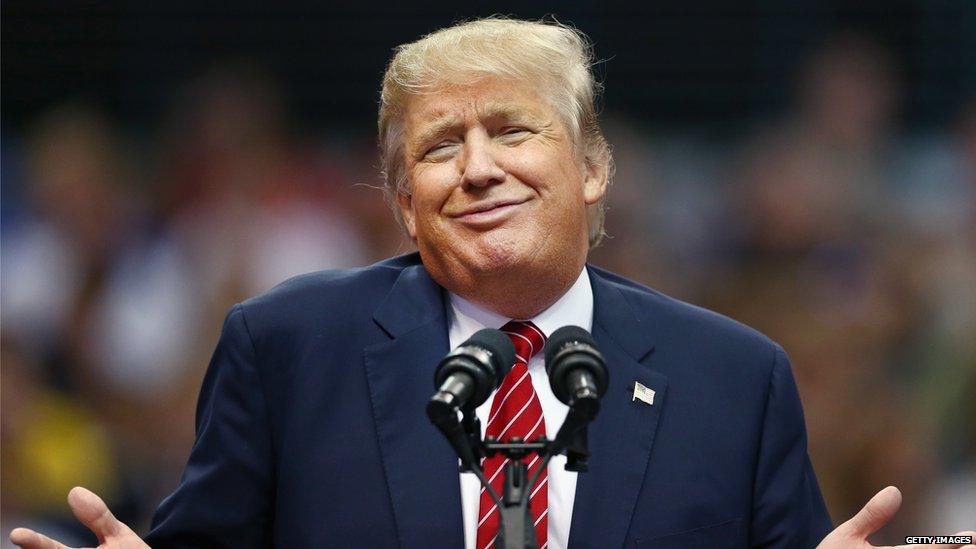Intelligence officials reveal secrets to Donald Trump
- Published
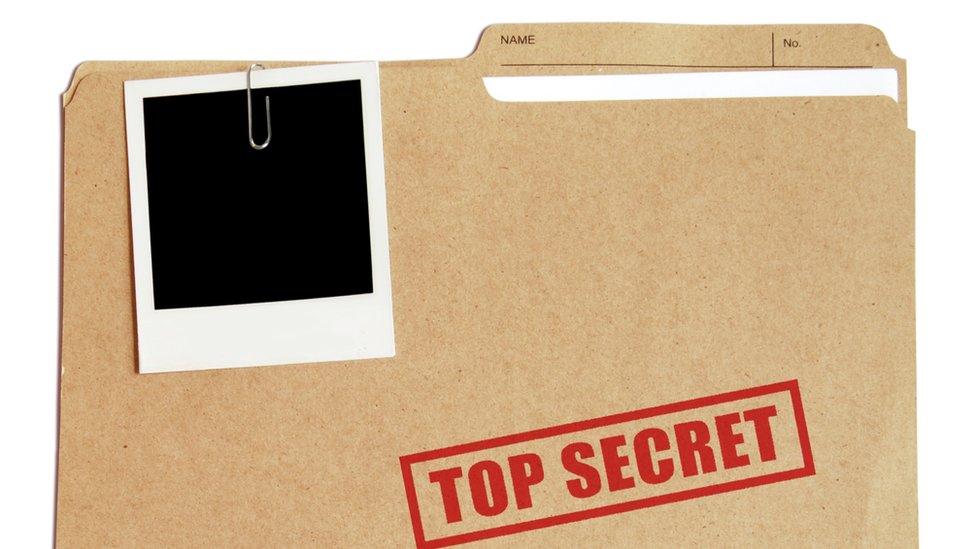
As the Republican nominee for the US presidency, Donald Trump received a classified briefing on Wednesday. What does that mean?
The intelligence briefing ensures that regardless which candidate wins, that person will be prepared on day one for his or her role as the commander-in-chief.
Both candidates receive these briefings, usually within days of one another. Hillary Clinton hasn't said anything publicly about her schedule. It's possible that she's already spoken to the intelligence officials, or is in the process of being briefed.
The briefing serves as an introduction to a world that is insular and closed off. Officials describe methods of collecting intelligence - from signals intelligence, which looks at radio and radar clues, to human intelligence gleaned from agents and contacts - and what they know based on those methods.
The officials explain about dangers, ranging from the Islamic State group to despotic leaders around the globe.
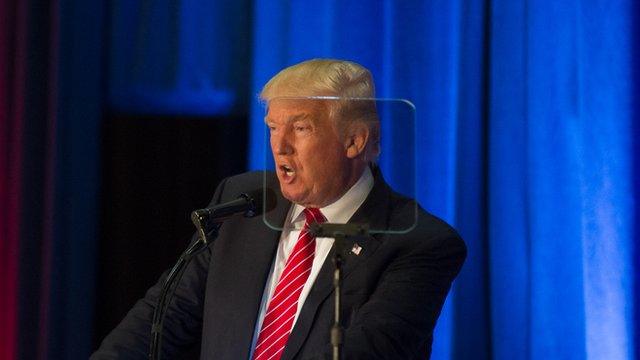
Trump has said he does not trust US intelligence
"For someone like Trump, it may be his first exposure to the real intelligence community," says Steven Aftergood, director of the Project on Government Secrecy at the Federation of American Scientists.
If Trump is elected, he'll work with the intelligence officials closely, and the briefing meetings provide a foundation for that relationship.
So far, it's shaping up to be a rocky one. The evening before his briefing, Trump said he didn't trust US intelligence, citing past "bad decisions", external on the part of the agencies. He said if he were elected president, he wouldn't rely on their reports.
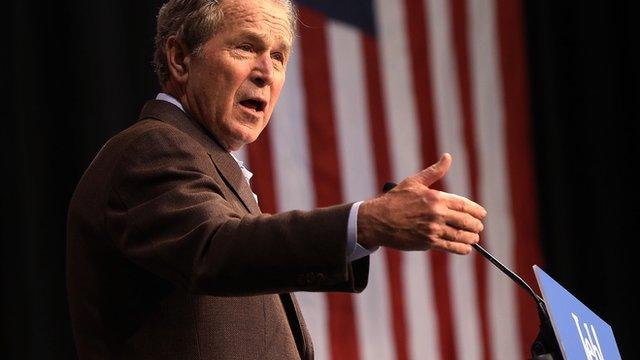
President George W Bush asked intelligence officials to help him keep the secrets
President George W Bush asked the officials to make it clear which of the information they provided came from "highly classified sources," wrote David Priess in The President's Book of Secrets, so he wouldn't accidentally reveal the secrets.
Priess, a former CIA officer, told CNN earlier this year, external that he worried about Trump's difficulty "compartmentalizing" information he receives that "should not be spoken of outside of a certain room".
While the officials will talk about national security, they will not reveal information about covert operations - or "the ultimate secrets", as Priess describes them. That briefing comes later, after a president is elected.
Intelligence officials are nonpartisan and conduct a briefing for both nominees, Republican and Democratic. Still even intelligence officials sometimes show their feelings.
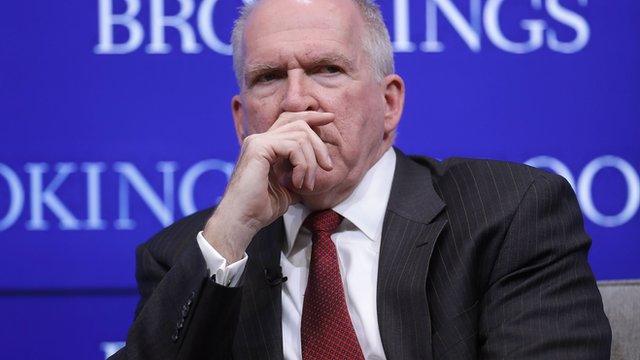
CIA Director John Brennan says that - if necessary - he will brief Donald Trump
During a talk, external in June, CIA director John Brennan said that if necessary he'd provide a briefing for Trump.
"I will try to carry out my responsibilities," Brennan said. Yet it was clear from his facial expression that he was not happy about the prospect.
However you feel about Trump, though, he now knows a great deal more about national security, courtesy of the nation's best authorities on the subject.
Follow Tara McKelvey (@Tara_Mckelvey) on Twitter.
- Published9 August 2016
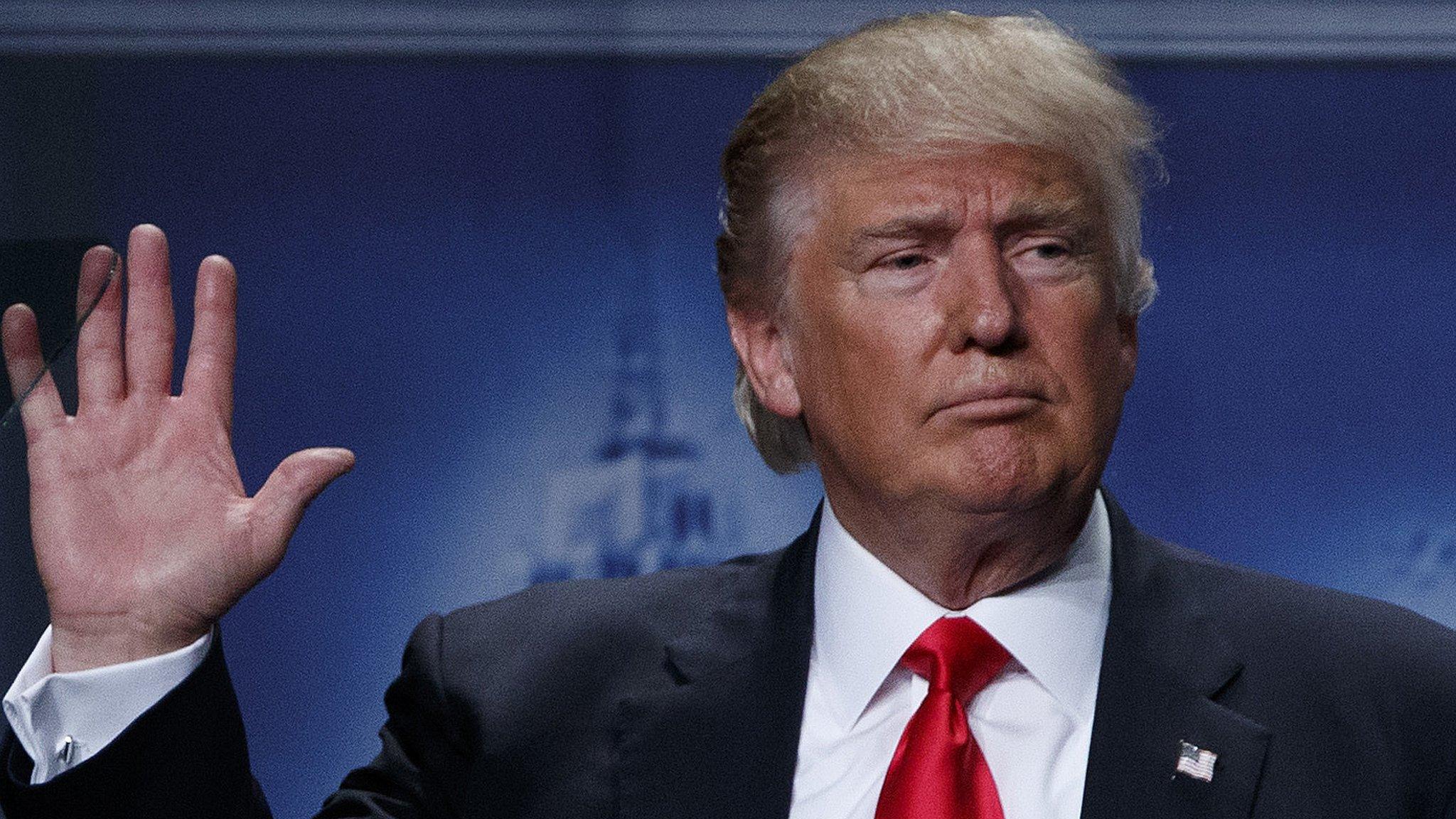
- Published9 August 2016
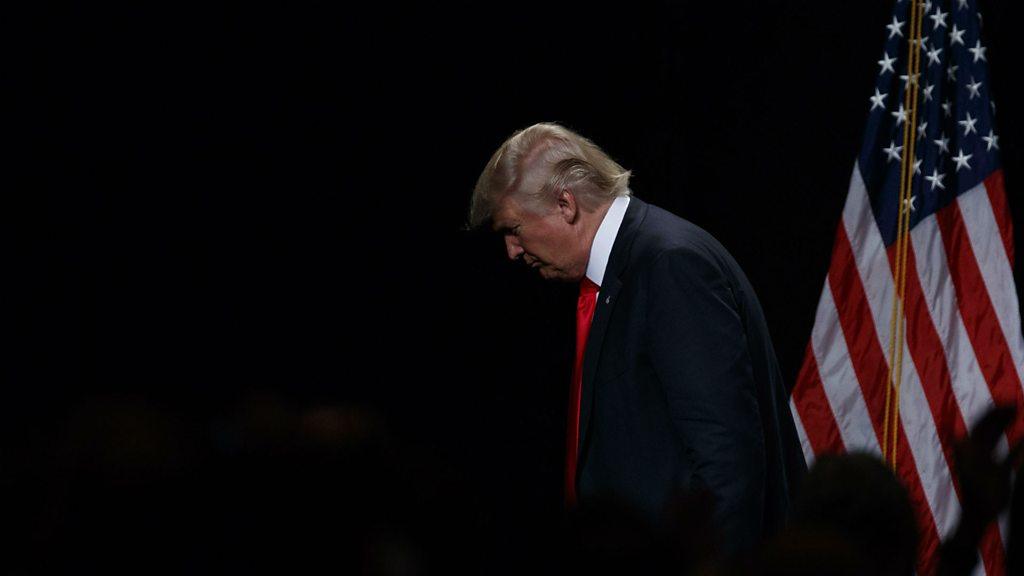
- Published17 March 2016
